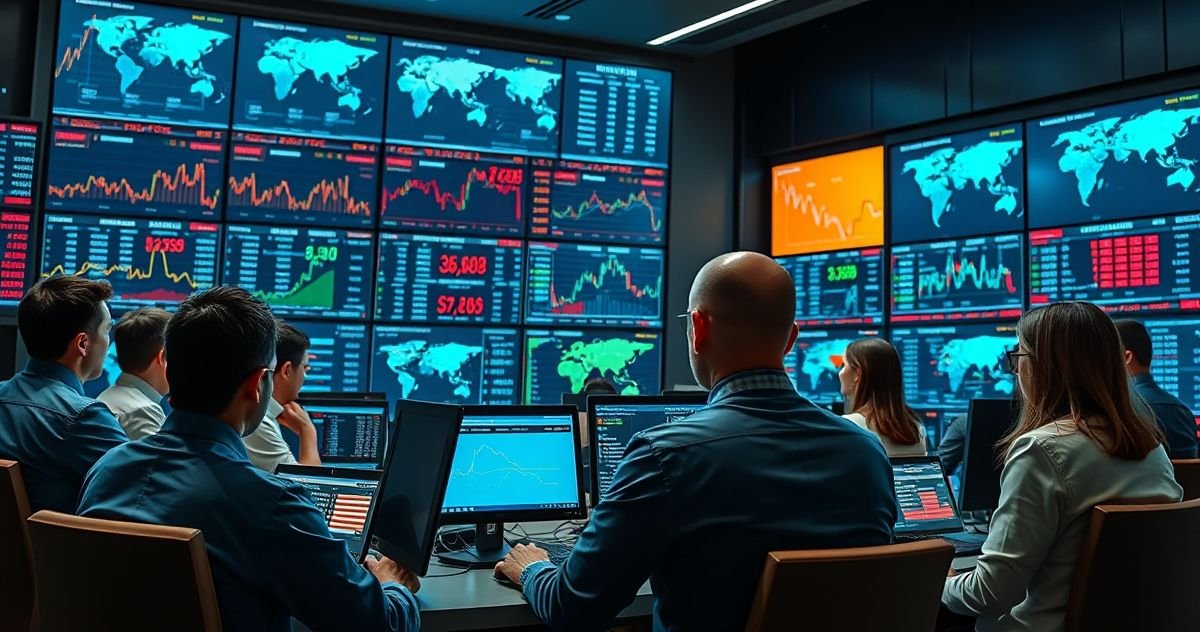The Foreign Exchange Market (Forex), also called FX, is the global marketplace for buying and selling currencies. It stands as the largest financial market on the planet, with daily trading volumes exceeding $6 trillion as of 2025. Open 24 hours a day during weekdays, Forex facilitates international trade, investment, and travel by enabling currency conversion and speculation.
History and Evolution
Forex trading’s roots trace back centuries to the barter systems and use of precious metals. Modern Forex began evolving significantly after 1971 when major economies shifted from fixed to floating exchange rates following the collapse of the Bretton Woods system. Since then, currency values fluctuate based on supply and demand, influenced by economic indicators, geopolitical events, and monetary policy.
How Forex Trading Works
Currencies always trade in pairs because you exchange one currency for another—popular pairs include EUR/USD, USD/JPY, and GBP/USD. For example, if a trader believes the euro will strengthen against the U.S. dollar, they buy the EUR/USD pair. If the euro appreciates, the trader can sell the pair for a profit.
Forex trading happens over-the-counter (OTC) through a global electronic network of banks, financial institutions, brokers, and individual traders. Unlike centralized exchanges, there is no single physical location.
Key Players in Forex
- Central Banks: Influence currency values through monetary policy and market interventions.
- Commercial Banks: Facilitate client foreign exchange transactions.
- Corporations: Buy and sell currencies to manage transaction risk in cross-border trade.
- Hedge Funds and Speculators: Seek profit from currency price movements.
- Retail Traders: Individual investors trading via online platforms.
Real-World Applications
- A U.S. importer purchases euros to pay for European goods.
- An investor hedges foreign investment risk by trading currencies.
- Travelers exchange currency before international trips.
Factors Impacting Currency Prices
Currency values shift due to interest rate changes, inflation data, political stability, economic growth reports, and geopolitical events.
Trading Tips and Strategies
- Stay Informed: Economic news and central bank announcements heavily impact prices.
- Manage Risk: Use stop-loss orders and limit leverage to control potential losses.
- Demo Practice: Try virtual accounts before trading real money.
- Focus on Major Pairs: Liquidity and spreads are better for pairs like EUR/USD.
Common Misconceptions
- Forex is not a quick way to get rich; it requires education and discipline.
- Price movements depend on both technical analysis and fundamental economic data.
- Trading without a clear plan or emotional control often leads to losses.
Forex Market Summary
| Feature | Details |
|---|---|
| Market type | Over-the-counter (OTC) |
| Trading hours | 24 hours/day, Monday through Friday |
| Daily volume | Over $6 trillion |
| Major currency pairs | EUR/USD, USD/JPY, GBP/USD |
| Key influencers | Interest rates, inflation, geopolitical events |
FAQs
Is Forex trading legal?
Yes, Forex trading is legal globally, but regulation varies by country. Always use brokers regulated by financial authorities like the U.S. Commodity Futures Trading Commission (CFTC).
Can I start Forex trading with a small amount?
Many brokers allow accounts with as little as $100, but careful risk management is essential for small accounts.
What drives Forex prices the most?
Key drivers include interest rates, GDP reports, employment statistics, and geopolitical news.
Understanding Forex is crucial for businesses, investors, and travelers operating in a connected global economy. It enables seamless currency exchange and offers opportunities for profit and risk management.
For a foundational understanding of currency itself, see Currency, which explains how money functions in the economy.
Sources:
- Investopedia: Foreign Exchange Market
- Consumer Financial Protection Bureau: Learn About Forex Trading
- Federal Reserve: The Foreign Exchange Market



